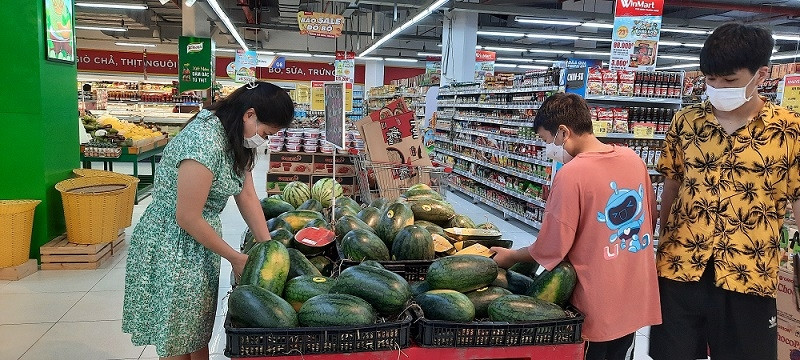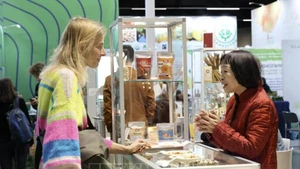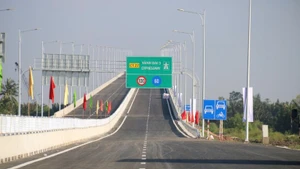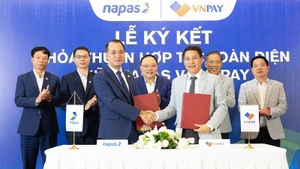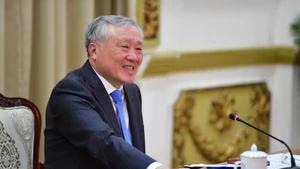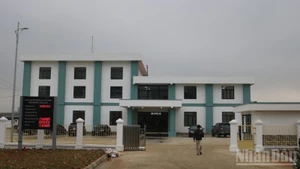Minister of Planning and Investment Nguyen Chi Dung has just reported to the government that with the ongoing recovery of economic growth, at 5.03% in the first quarter and 7.72% in the second quarter – the highest Q2 growth rate over the past 11 years, the third quarter will likely see “higher economic growth”, helping the economy to reach its new target of 7% this year.
“The economy now boasts an ability of quicker recovery due to many impetuses, such as production and consumption bouncing back, while the confidence of businesses and investors is growing, with business and production activities continuing to flourish,” Dung said. “Especially the Programme on Socio-economic Recovery and Development (PSRD) is being implemented with a quicker pace and a more effective manner. What is more, many international organisations are expecting that the Vietnamese economy will make greater strides as compared to other regional nations.”
Confidence rising
The General Statistics Office (GSO) reported that in the first seven months of 2022, the economy witnessed 89,400 enterprises newly established, up 17.9% year-on-year, and nearly 44,300 enterprises resuming operations, up 49.7% year-on-year.
If the 102.3 billion USD worth of additional capital from 31,200 operational businesses is taken into account, the total newly-registered capital into the economy in the first seven months of this year is 145 billion USD, up 37.2% as compared to that in the same period last year.
“The figures show that businesses and investors remain optimistic about the Vietnamese economy’s outlook,” said GSO’s general director Nguyen Thi Huong. “Almost all economic indexes have been improved”.
For example in the first seven months, the country’s index for industrial production expanded 8.8% year-on-year, higher than the year-on-year 7.6% rate recorded in the corresponding period of 2021, while the processing and manufacturing – the backbone of the economy – increased 9.7% year-on-year.
The GSO has also released results of its Q2 survey on nearly 5,640 manufacturing and processing enterprises. Accordingly, 78.4% of respondents said their Q2 performance got better from the first quarter. Only 21.6% cited more difficulties than in Q1.
“For Q3, 85% of respondents expect that their performance will continue getting better as compared to the second quarter, and only 15% predict more difficulties,” the survey read. “As for new orders in Q3 over Q2, 44.9% project see an increase, 13.8% forecast a fall, and 41.3% expect a stability.”
According to the Business Climate Index (BCI) for Q2 released recently by the European Chamber of Commerce in Vietnam (EuroCham) and conducted by YouGov Vietnam, 60% of respondents predicted that the Vietnamese economy would stabilise or improve in the third quarter of 2022.
Additionally, participants were surveyed regarding foreign direct investment (FDI) in Vietnam. According to the findings, 45 percent of respondents were significantly or moderately satisfied with Vietnam's efforts to attract and retain FDI, while 76 percent expected their company to increase FDI to Vietnam before the end of the third quarter. This may be due to the fact that 55 percent of respondents said Vietnam improved its FDI attraction and retention capabilities since the first quarter.
“As foreign investors' confidence in the Vietnamese market remains stable in a turbulent time, more FDI is flowing into the country. Vietnam's potential for green growth is also inspiring European investors. As a result, these BCI results should be interpreted positively, as should the Vietnamese market in general,” said CEO of YouGov Thue Quist Thomasen.
Upbeat projections
Standard Chartered Bank maintains its GDP growth projection for Vietnam at 6.7% for this year and 7.0% for 2023. The forecast is highlighted in the Vietnam section of the Bank’s recently published global research report titled “Global Focus – Economic Outlook Q3-2022: Near the tipping point”.
“Vietnam’s economic recovery has shown signs of broadening; macroeconomic indicators continued to recover in June. The recovery may accelerate markedly in H2, particularly as tourism reopens after a two-year closure. That said, rising global oil prices may have negative consequences for the economy,” said Tim Leelahaphan, Economist for Thailand and Vietnam, Standard Chartered Bank.
In its Asian Development Outlook Supplement released last week, the Asian Development Bank stated that the 2022 forecast for Southeast Asia is marginally upgraded from 4.9 to 5.0% as domestic demand benefits from the continued lifting of COVID-19 mobility restrictions and the reopening of borders in some economies in the subregion.
Meanwhile, “In Vietnam, trade continued to expand in the first half of 2022, and domestic mobility, manufacturing, and consumption rapidly recovered. The growth forecast is maintained at 6.5% for this year and 6.7% for next year.”
The Executive Board of the International Monetary Fund (IMF) a few weeks ago concluded its consultation with Vietnam on the nation’s macroeconomic policies, saying that a recovery in the economy “is underway and high frequency indicators point to stronger momentum going into 2022, with rising retail sales, industrial production, and firm entry.”
“Staff projects the economy to grow by 6% in 2022 and 7.2% in 2023,” said an IMF press release.
This forecast assumes continued vaccine effectiveness, abated supply disruptions, and normalisation of activity proceeding apace during 2022. Especially the country’s PSRD is implemented effectively.
Early this year, the National Assembly (NA) approved a significant support package for 2022-2023, estimated at 4.1 percent of GDP (around $15 billion) in service of the PSRD.
The package includes 2 billion USD used for buying vaccines and medical equipment. The remaining 13 billion USD covers two packages, with one valued at 5.43 billion USD and the other worth 7.65 billion USD.
The 5.43 billion USD embraces four sums, including 2.78 billion USD worth of a 2% decrease of VAT for enterprises, from 10% – this policy has been carried out to date; 1.67 billion USD as a credit policy deployed through Vietnam Bank for Social Policies – more than one third of this sum has been disbursed; 260.87 million USD as extension of tax payment and reduction of special consumption tax for automobiles and some other kinds of taxes – implementation of this sum will be completed at the year’s end; and 286.95 million USD as support for labourers to hire houses.
Meanwhile, the 7.65 billion USD is for public investment, and the remaining 5.83 billion USD is used for infrastructure development including 4.48 billion USD for road and highway construction – nevertheless, this sum is slow for disbursement due to incomplete procedures. In the first seven months, the rate of public investment disbursement hit 34.47% of the plan assigned by the prime minister, lower than the 36.71% rate in the same period last year.
However, Standard Chartered Bank, has pointed out three factors that could adversely affect Vietnam’s economic outlook, including new COVID variants, the lifting of US tariffs on imports from China, and a global recession.
“Pandemic concerns persist, despite Vietnam’s shift to a ‘living with COVID’ policy. On the trade front, the White House has said it is reviewing tariffs on some US imports from China to ease inflation,” Standard Chartered Bank said. “This could slow the pace of investment relocation from China to Vietnam, reducing foreign direct investment inflows to Vietnam or even resulting in outflows. Meanwhile, a global recession could hit exporters hard. Exports of goods and services are equivalent to more than 100% of Vietnam’s GDP.”
According to the Ministry of Planning and Investment, in from now until the year’s end, it is extremely important that the government continue extending active support to the rapid recovery and development of business and production activities.
“The government needs to continue assisting enterprises in cost reduction and access to capital for them to continue developing,” Minister Nguyen Chi Dung suggested.
